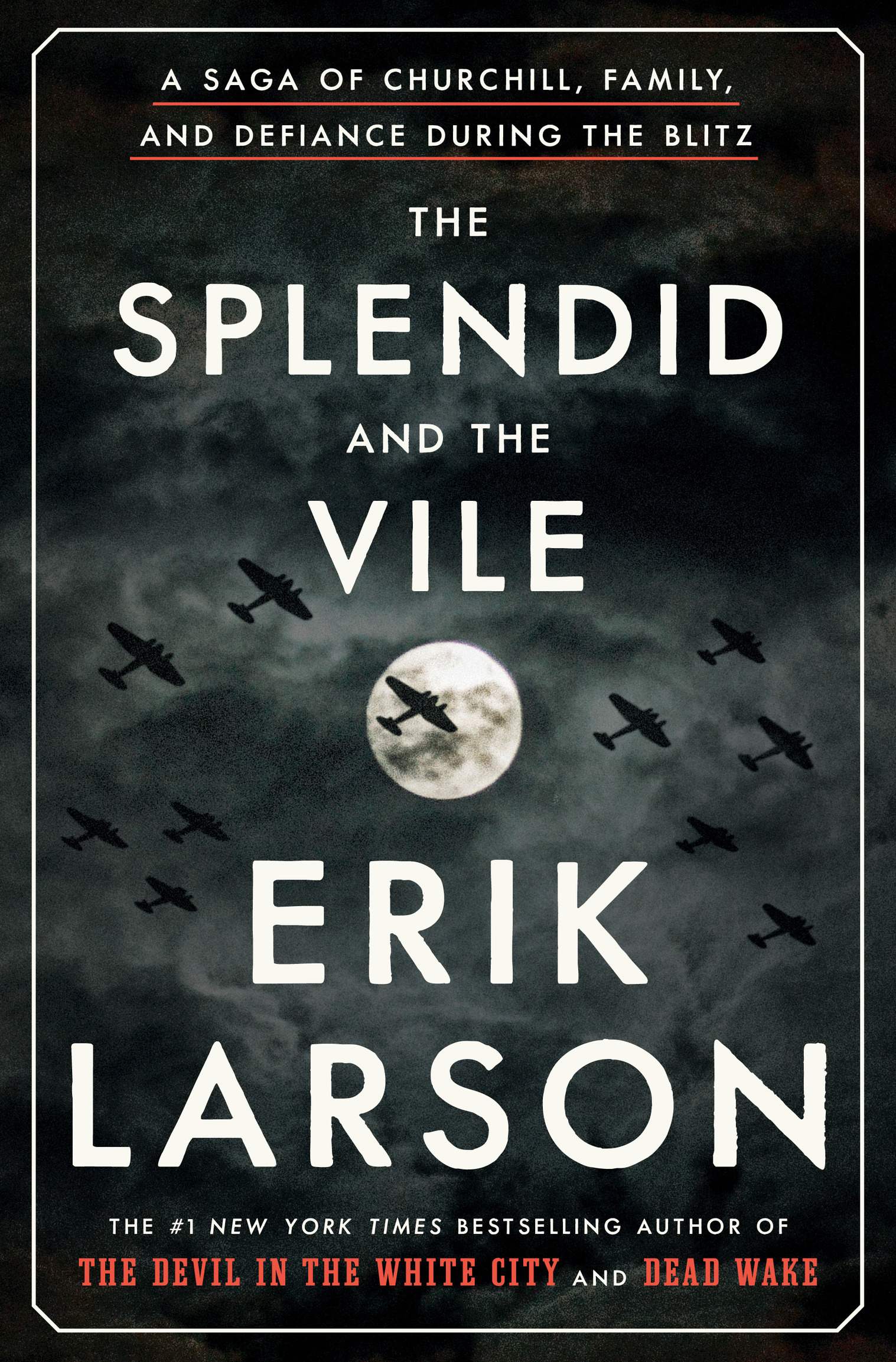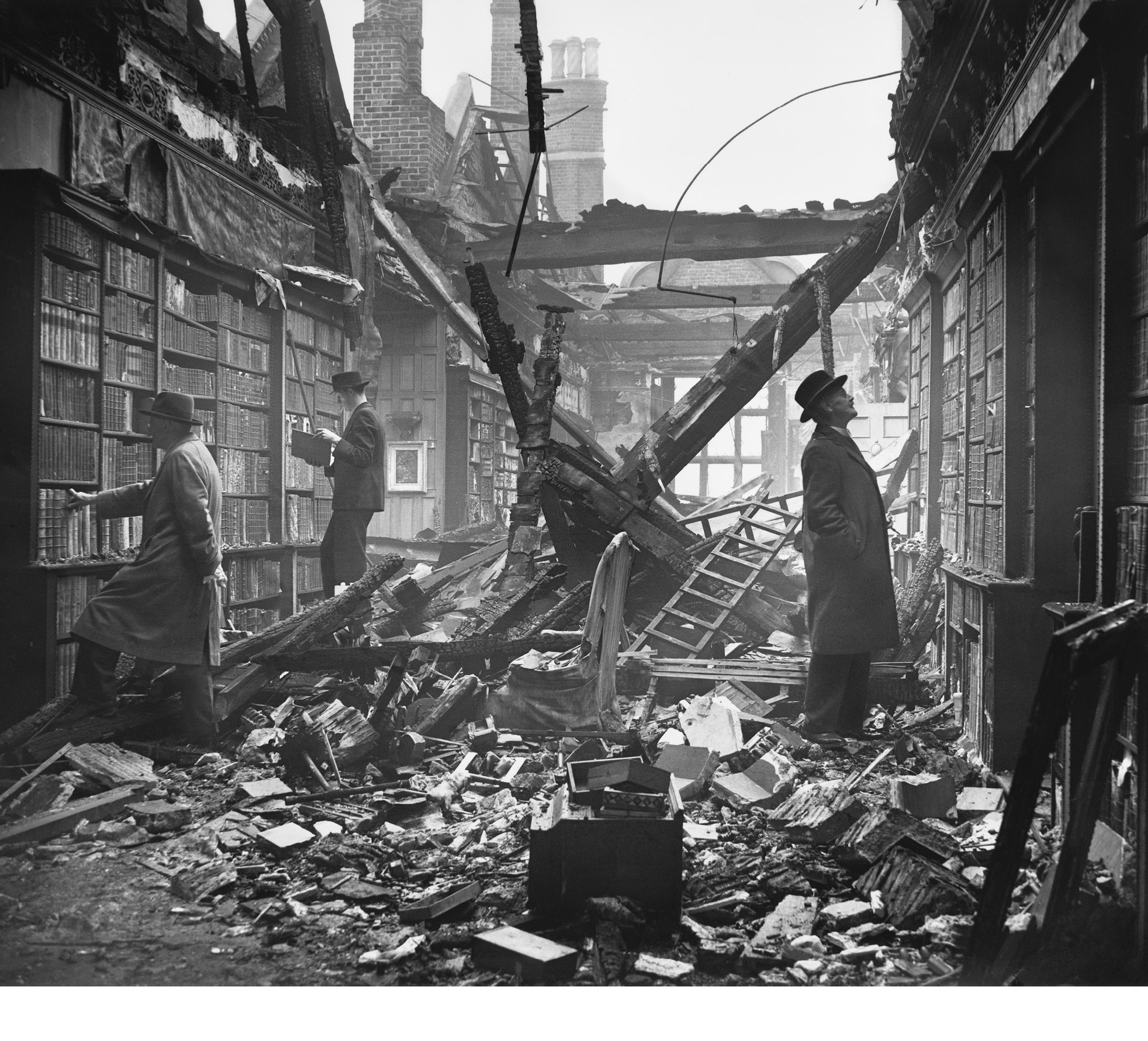The Splendid and the Vile: A Saga of Churchill, Family, and Defiance During the Blitz
Read The Splendid and the Vile: A Saga of Churchill, Family, and Defiance During the Blitz Online
Authors: Erik Larson




Copyright © 2020 by Erik Larson
Reader’s guide copyright © 2020 by Penguin Random House LLC.
All rights reserved.
Published in the United States by Crown, an imprint of Random House, a division of Penguin Random House LLC, New York.
C
ROWN
and the Crown colophon are registered trademarks of Penguin Random House LLC.
For quotes reproduced from the speeches, works and writings of Winston S. Churchill:
Reproduced with permission of Curtis Brown, London on behalf of The Estate of Winston S. Churchill.
© The Estate of Winston S. Churchill
Reproduced with permission of Curtis Brown Group Ltd, London on behalf of The Trustees of the Mass Observation Archive.
© The Trustees of the Mass Observation Archive
Library of Congress Cataloging-in-Publication Data
Names: Larson, Erik, 1954– author.
Title: The splendid and the vile / Erik Larson.
Description: First edition. | New York : Crown, [2020] | Includes bibliographical references and index.
Identifiers: LCCN 2019045028 (print) | LCCN 2019045029 (ebook) | ISBN 9780385348713 (hardcover) | ISBN 9780385348720 (ebook)
Subjects: LCSH: Churchill, Winston, 1874–1965. | Prime ministers—Great Britain—Biography. | World War, 1939–1945—Great Britain. | World War, 1939–1945—Campaigns—Great Britain. | World War, 1939–1945—Social aspects—Great Britain.
Classification: LCC DA566.9.C5 L326 2020 (print) | LCC DA566.9.C5 (ebook)
| DDC 940.54/2121—dc23
LC record available at
https://lccn.loc.gov/2019045028
LC ebook record available at
https://lccn.loc.gov/2019045029
Ebook ISBN 9780385348720
F
RONTISPIECE PHOTOGRAPH:
Central Press/Hulton Archive/Getty Images
Map by Jeffrey L. Ward
Book design by Barbara M. Bachman, adapted for ebook
Cover design: Christopher Brand
Cover photograph: Hulton Deutsch/Corbis Historical/Getty Images
ep_prh_5.4_c0_r1
It is not given to human beings—happily for them, for otherwise life would be intolerable—to foresee or to predict to any large extent the unfolding course of events.
—
W
INSTON
C
HURCHILL, EULOGY FOR
N
EVILLE
C
HAMBERLAIN,
N
OVEMBER 12, 1940
I
T WAS ONLY WHEN
I
moved to Manhattan a few years ago that I came to understand, with sudden clarity, how different the experience of September 11, 2001, had been for New Yorkers than for those of us who watched the nightmare unfold at a distance. This was their home city under attack. Almost immediately I started thinking about London and the German aerial assault of 1940–41, and wondered how on earth anyone could have endured it: fifty-seven consecutive nights of bombing, followed by an intensifying series of nighttime raids over the next six months.
In particular I thought about Winston Churchill: How did he withstand it? And his family and friends? What was it like for him to have his city bombed for nights on end and to know full well that these air raids, however horrific, were likely only a preamble to far worse, a German invasion from the sea and sky, with parachutists dropping into his garden, panzer tanks clanking through Trafalgar Square, and poison gas wafting over the beach where once he painted the sea?
I decided to find out, and quickly came to realize that it is one thing to
say
“Carry on,” quite another to do it. I focused on Churchill’s first year as prime minister, May 10, 1940, to May 10, 1941, which coincided with the German air campaign as it evolved from sporadic, seemingly aimless raids to a full-on assault against the city of London. The year ended on a weekend of Vonnegutian violence, when the quotidian and the fantastic converged to mark what proved to be the first great victory of the war.
What follows is by no means a definitive account of Churchill’s life. Other authors have achieved that end, notably his indefatigable but alas not immortal biographer Martin Gilbert, whose eight-volume study should satisfy any craving for the last detail. Mine is a more intimate account that delves into how Churchill and his circle went about surviving on a daily basis: the dark moments and the light, the romantic entanglements and debacles, the sorrows and laughter, and the odd little episodes that reveal how life was really lived under Hitler’s tempest of steel. This was the year in which Churchill became
Churchill,
the cigar-smoking bulldog we all think we know, when he made his greatest speeches and showed the world what courage and leadership looked like.
Although at times it may appear to be otherwise, this is a work of nonfiction. Anything between quotation marks comes from some form of historical document, be it a diary, letter, memoir, or other artifact; any reference to a gesture, gaze, or smile, or any other facial reaction, comes from an account by one who witnessed it. If some of what follows challenges what you have come to believe about Churchill and this era, may I just say that history is a lively abode, full of surprises.
—
E
RIK
L
ARSON
M
ANHATTAN, 2020
